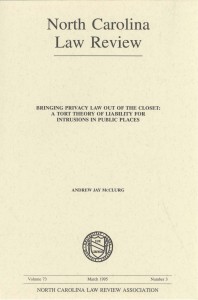 Andrew Jay McClurg, Bringing Privacy Law Out of the Closet: A Tort Theory of Liability for Intrusions in Public Places, 73 North Carolina Law Review 989-1088 (1995).
Andrew Jay McClurg, Bringing Privacy Law Out of the Closet: A Tort Theory of Liability for Intrusions in Public Places, 73 North Carolina Law Review 989-1088 (1995).
“Public privacy” sounds like an oxymoron, but this article asserts a tort theory to enforce just such a right under limited circumstances. Traditionally, courts have refused to recognize a right to privacy in a public place. The author argues that this lack of protection needs to be revisited in a world where good taste and decency have vanished from journalism/entertainment and video cameras and other electronic privacy-invading devices have proliferated.
Analyzing the three foundations of privacy—secrecy, solitude, and anonymity—the author explains how and why they need, and are worthy of, legal protection even in some public contexts.
Specifically, he proposes a redefinition of the privacy tort known as “intrusion” (as incorporated in the Restatement (Second) of Torts) that would allow recovery for highly offensive instances of intrusions in public places. He enlists a multi-factor test to assess the offensiveness of intrusive conduct, a standard that balances privacy interests against the countervailing interests of free social interaction and speech.


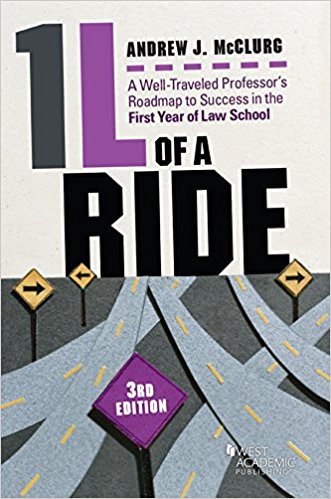
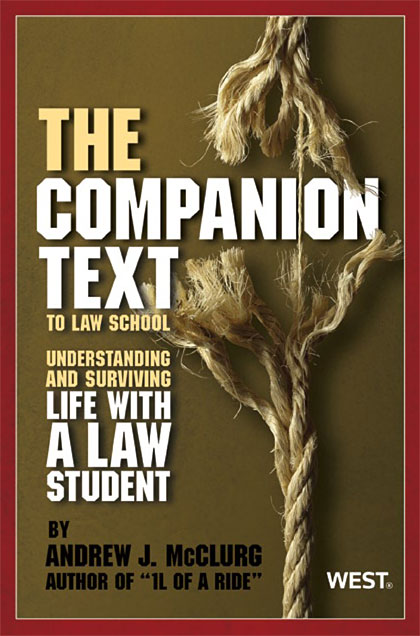




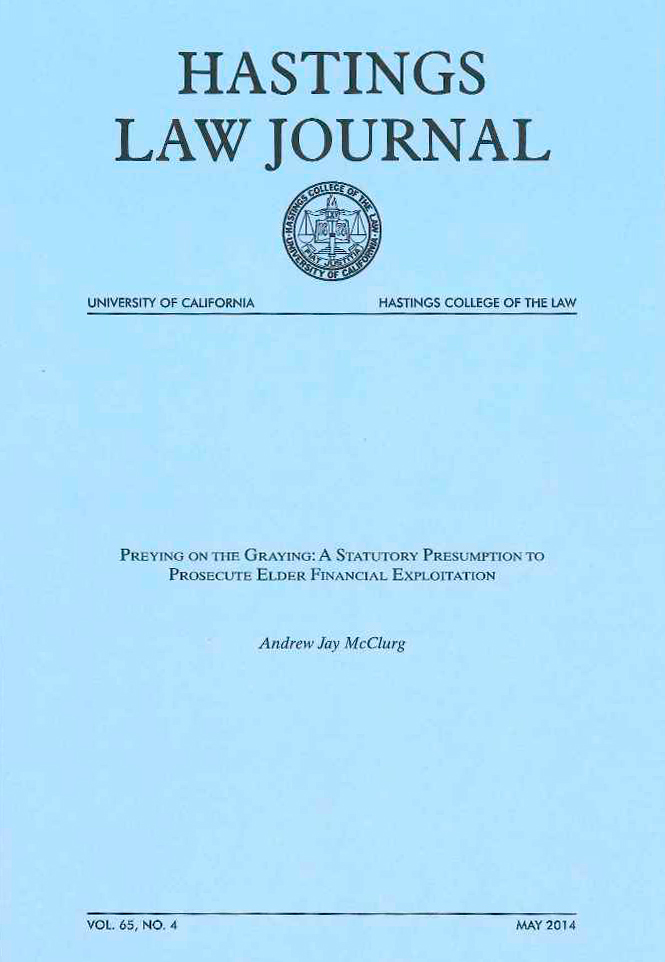
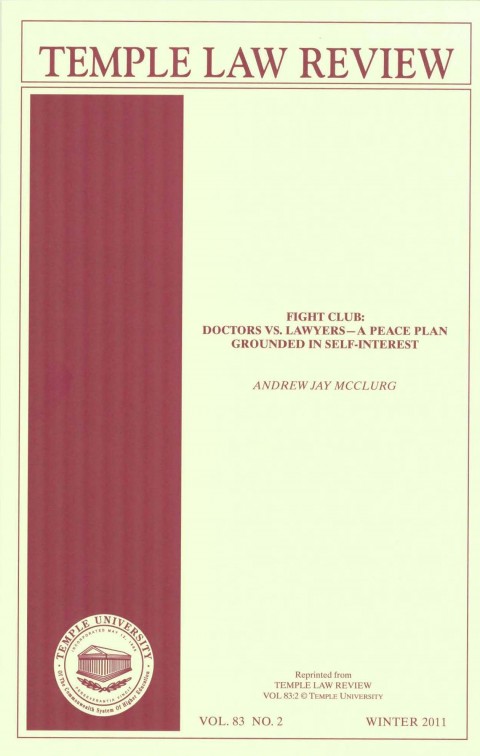
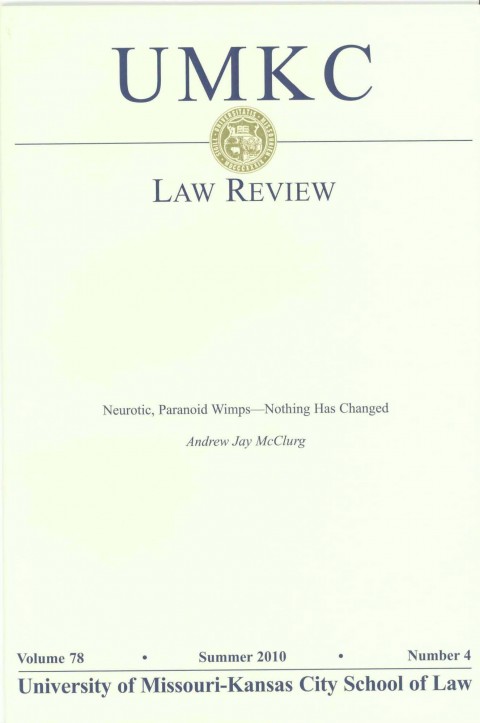
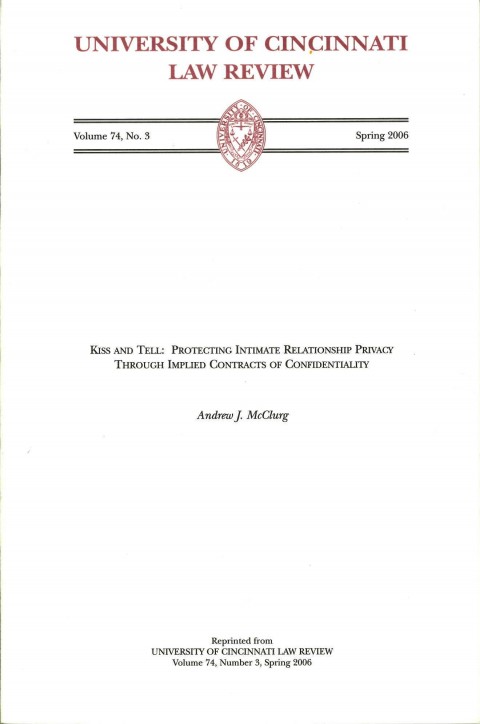
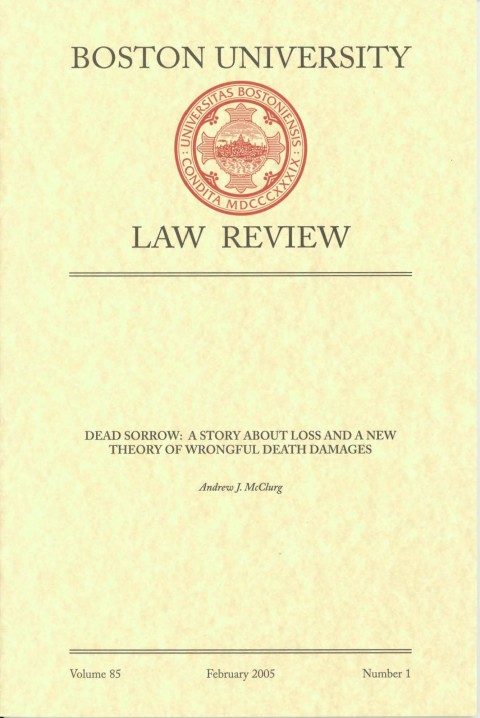
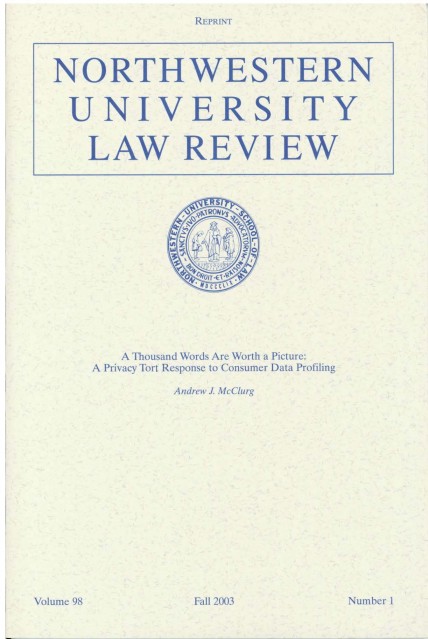
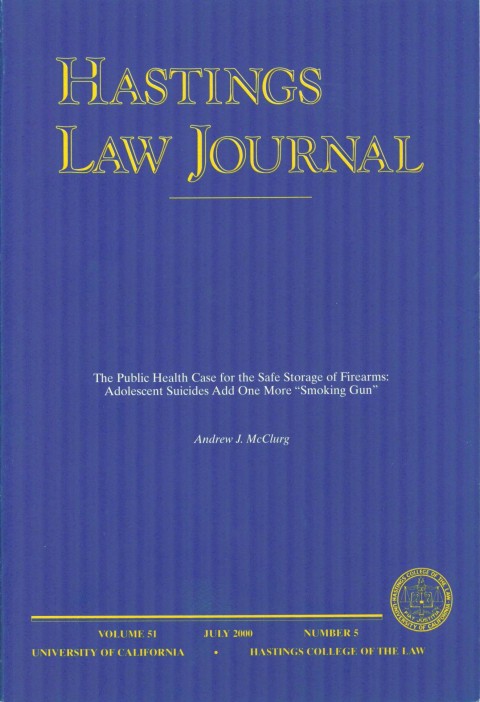
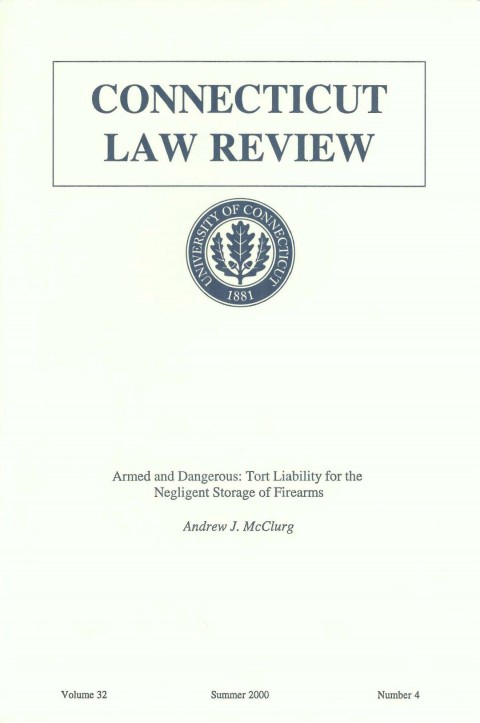
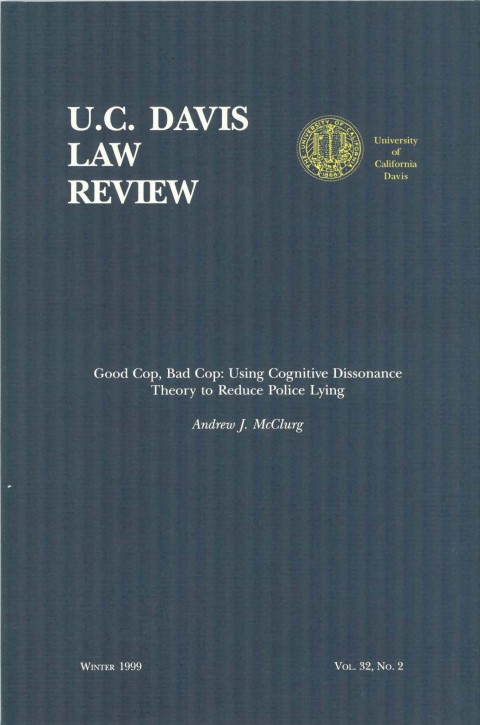
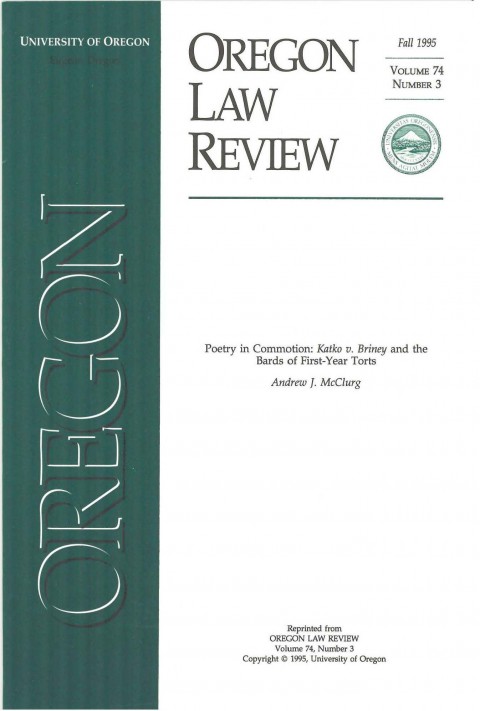
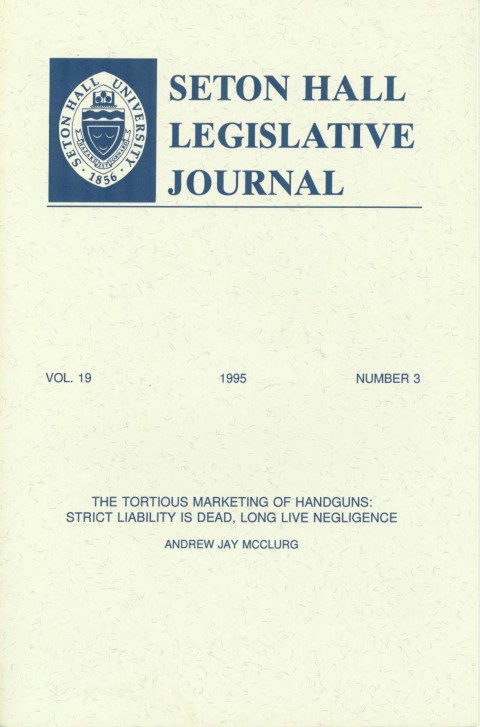
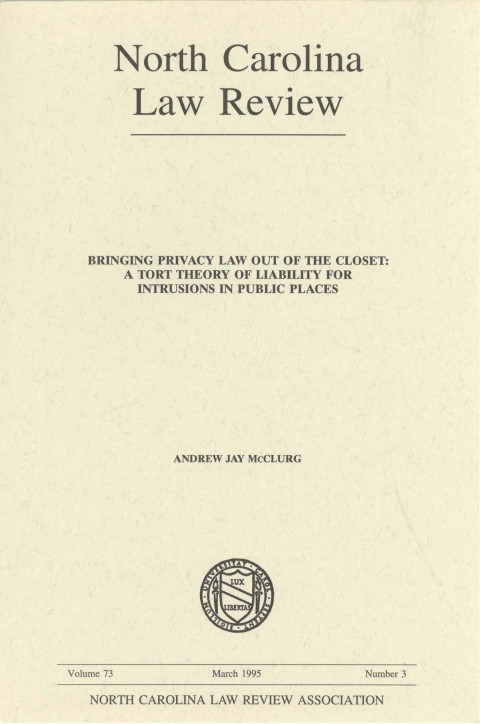
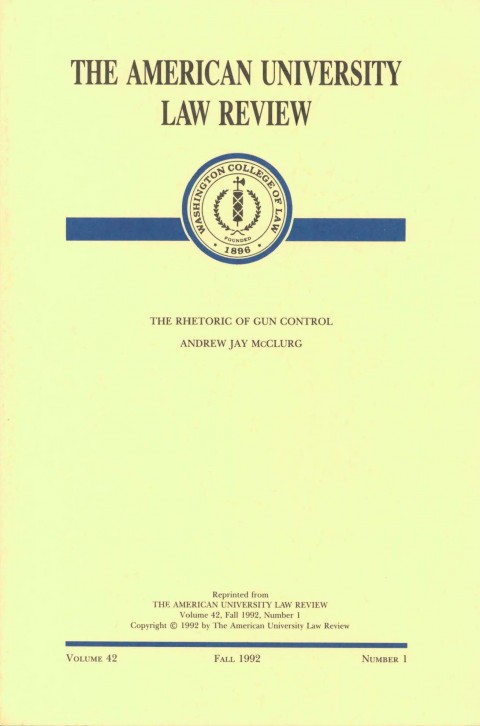
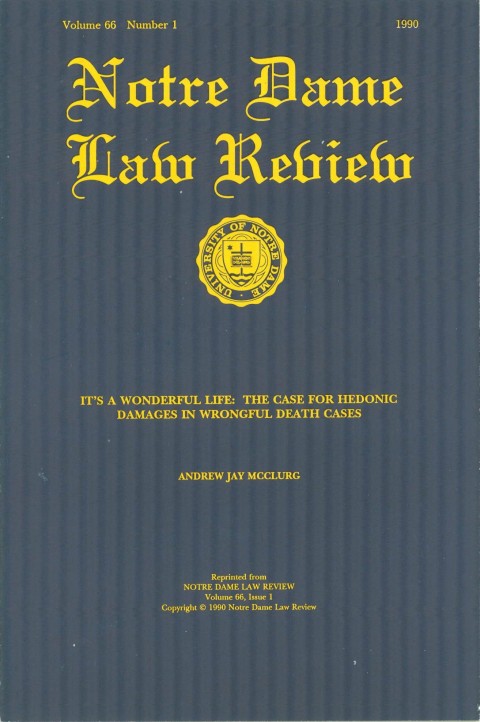
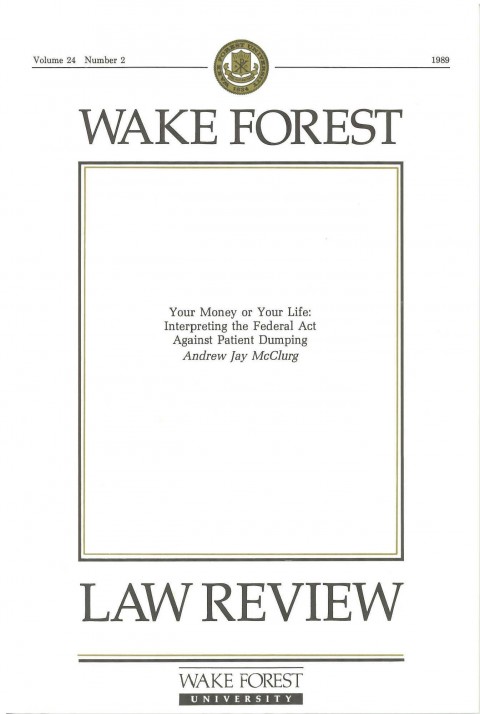
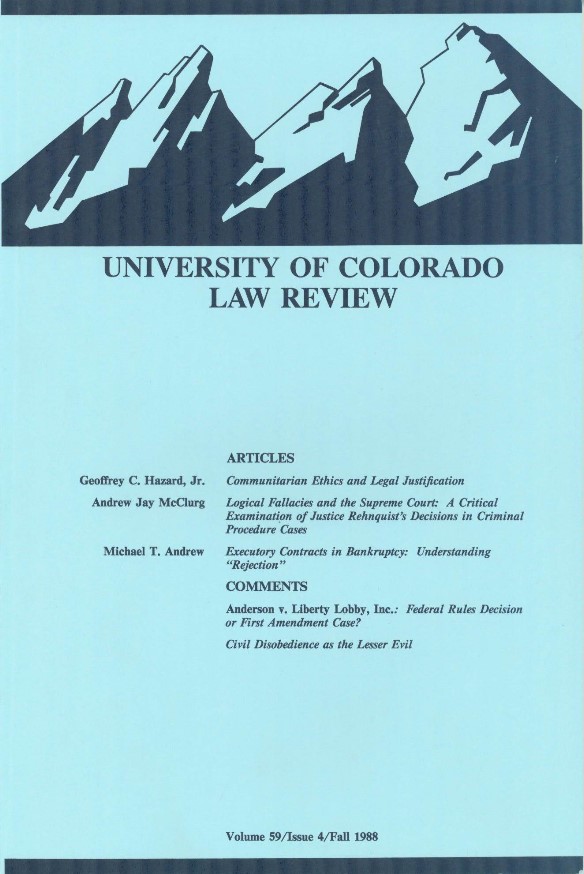

Leave a Reply